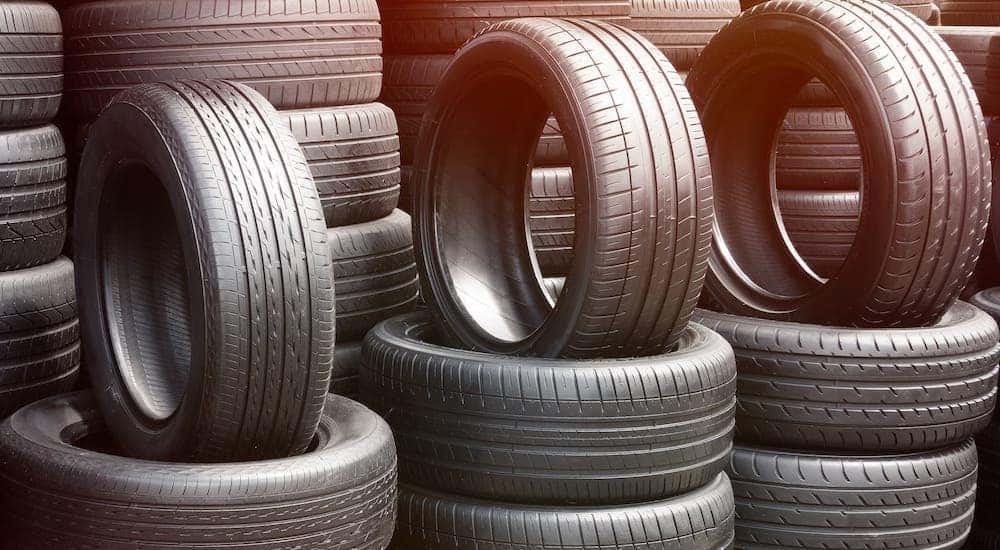Don't Miss Out on Mopar Tire Service Specials: Budget-friendly Upkeep Plans
Don't Miss Out on Mopar Tire Service Specials: Budget-friendly Upkeep Plans
Blog Article
Tire Service: The Influence of Climate Condition
When it pertains to making sure optimum performance and security when traveling, understanding the influence of weather conditions on tire service is important. From scorching warm to icy roadways, each climate component can significantly affect tire functionality and general driving experience. By delving right into the results of varying weather conditions on tires, vehicle drivers can get useful understandings that might improve their car's performance and longevity. In this discussion, we will certainly check out the complex connection between weather conditions and tire service, clarifying the importance of weather-specific tire upkeep practices and considerations.
Warm and Tire Efficiency
When revealed to heats, tires experience modifications in efficiency that can substantially influence car safety and security and handling. The warm created from prolonged driving or heat problems triggers the tire rubber to soften, causing lowered step life and increased wear. As the rubber ends up being softer, the tire's hold when driving diminishes, influencing braking distances and total traction. In extreme instances, too much warmth can even create tire blowouts, positioning a severe safety and security danger to the vehicle and its passengers.
Moreover, high temperature levels can accelerate the process of tire aging, triggering the rubber to degrade a lot more rapidly. This can result in splits, protrudes, and various other kinds of damage that jeopardize the architectural stability of the tire. To reduce the effects of heat on tire performance, chauffeurs need to frequently inspect their tire pressure, rotate tires to guarantee also use, and inspect for any indicators of damage. In addition, making use of tires especially designed to stand up to heats can aid preserve optimal performance and safety and security when driving.
Cold Weather Effects
Cold weather condition conditions can have a substantial effect on tire performance and security. In cool weather condition, tires might additionally shed air pressure a lot more rapidly, which can influence taking care of and fuel effectiveness.
To alleviate the impacts of winter on tires, it is critical to regularly check tire stress and inflate them to the supplier's advised levels. Using winter season or all-season tires designed for chilly climate problems can additionally improve traction and grip on icy or snowy roadways - discount tires morris il. Proper tire maintenance, consisting of routine examinations for wear and damage, comes to be a lot more essential throughout colder months to ensure ideal performance and safety
Rainy Conditions Effect
Tires with damaged treads are much more vulnerable to hydroplaning, where a layer of water develops up in between the tire and the road surface area, leading to loss of grip. To combat this, drivers should regularly inspect their tires for adequate walk depth and consider investing in tires specifically designed for wet conditions.

Snow and Tire Safety And Security
When driving in snowy problems, having the right tires can make a considerable distinction in security and efficiency. Winter season tires are created with special rubber compounds and tread patterns to offer far better grip on snow and ice compared to all-season tires.
Along with making use of winter tires, it is important to ensure they are correctly inflated. Winter can create tire stress to go down, my latest blog post impacting traction and handling (morris tire and alignment). Frequently examining and keeping the appropriate tire stress is vital for optimal efficiency in snowy conditions

Weather-Related Tire Maintenance
When confronted with different climate condition, proper tire maintenance ends up being a critical aspect of automobile safety and security and performance. Weather-related tire maintenance incorporates an array of techniques intended at making certain optimum tire function and durability in different climate circumstances. One vital aspect of weather-related tire upkeep is tire stress guideline. Changing temperature levels can cause tire pressure to vary, impacting traction and gas performance. Routinely website link examining and adjusting tire stress according to manufacturer referrals is necessary for secure driving in transforming weather conditions. Furthermore, tire tread depth plays a substantial duty in managing different weather aspects. Tires with adequate step deepness provide much better grasp on wet or icy roads, minimizing the danger of hydroplaning or skidding. Examining tire walk frequently and replacing tires when step wear reaches a specific depth is important for maintaining grip and stability in unfavorable climate. By prioritizing weather-related tire maintenance, motorists can boost safety, enhance lorry performance, and extend the life expectancy of their tires.
Conclusion
Finally, climate condition have a considerable effect on tire performance and security. From heat influencing tire stress and use to cool weather minimizing traction, it is important to think about the weather condition when maintaining and utilizing tires. Wet conditions can lower grasp and bring about hydroplaning, while snow can boost the risk of accidents if tires are not properly equipped. Weather-related tire upkeep is vital in making certain optimum efficiency and security when driving.
In this discussion, we will certainly check out the complex connection in between weather problems and tire service, dropping light on the importance of weather-specific tire upkeep practices and factors to consider.

Report this page